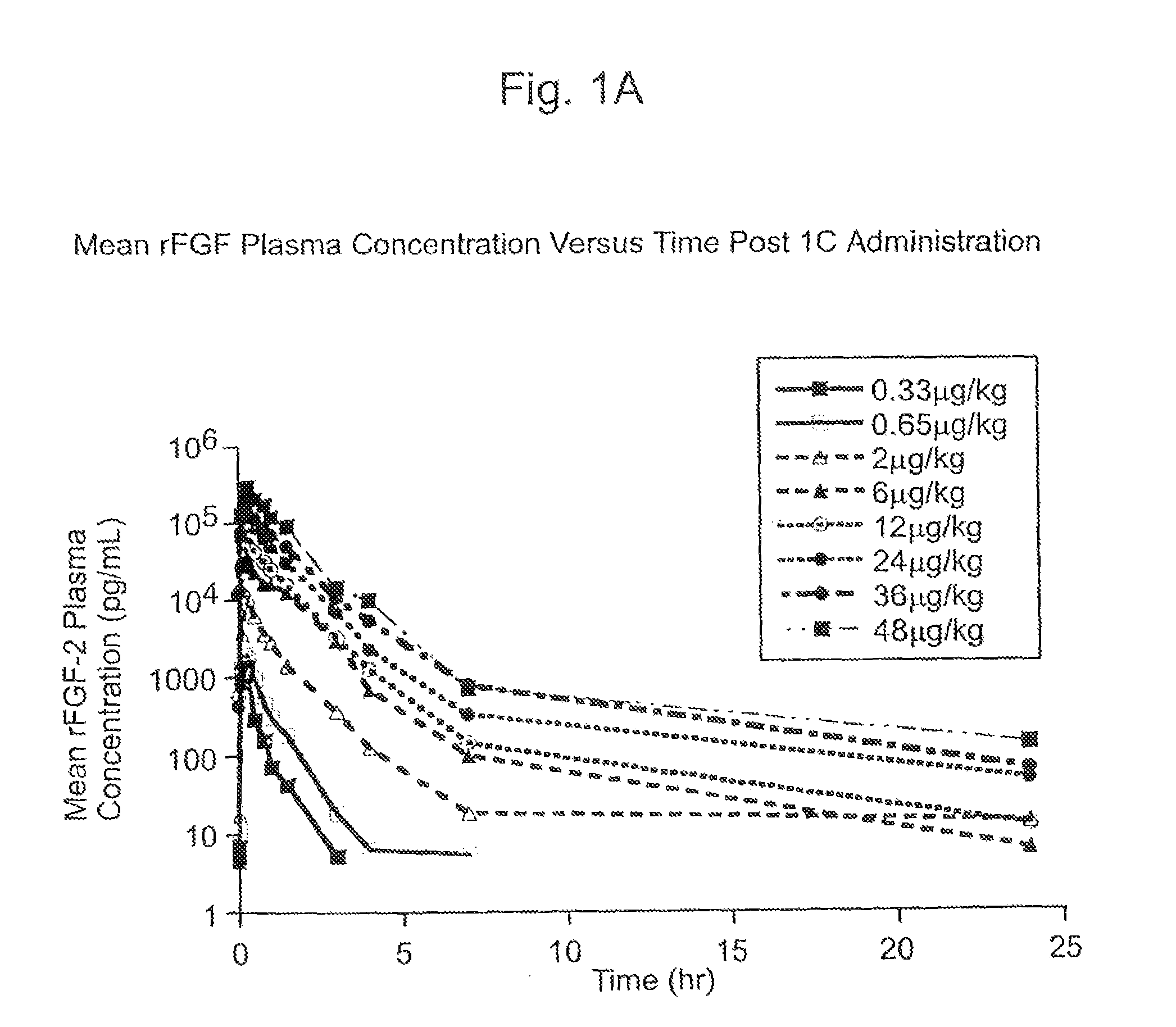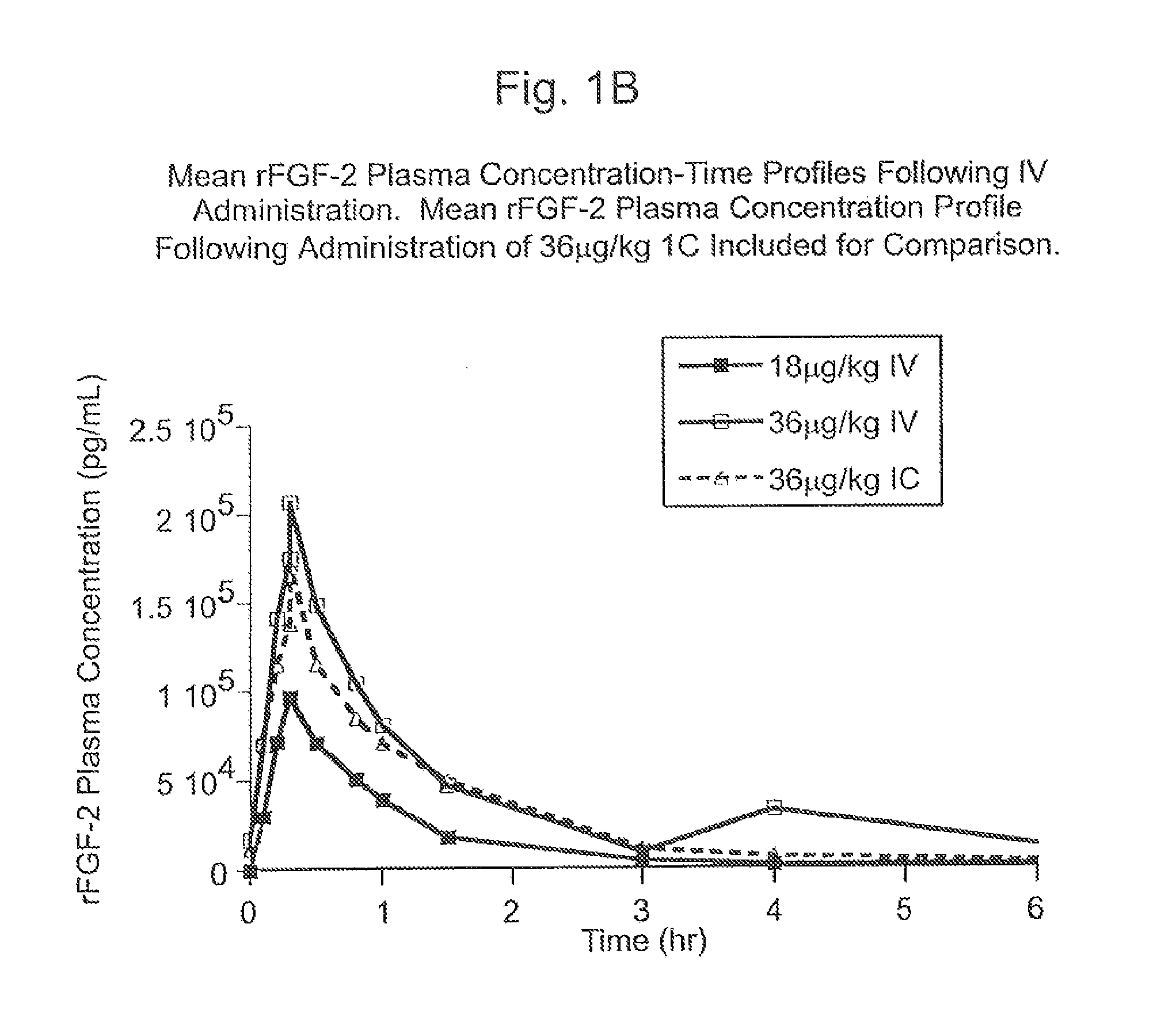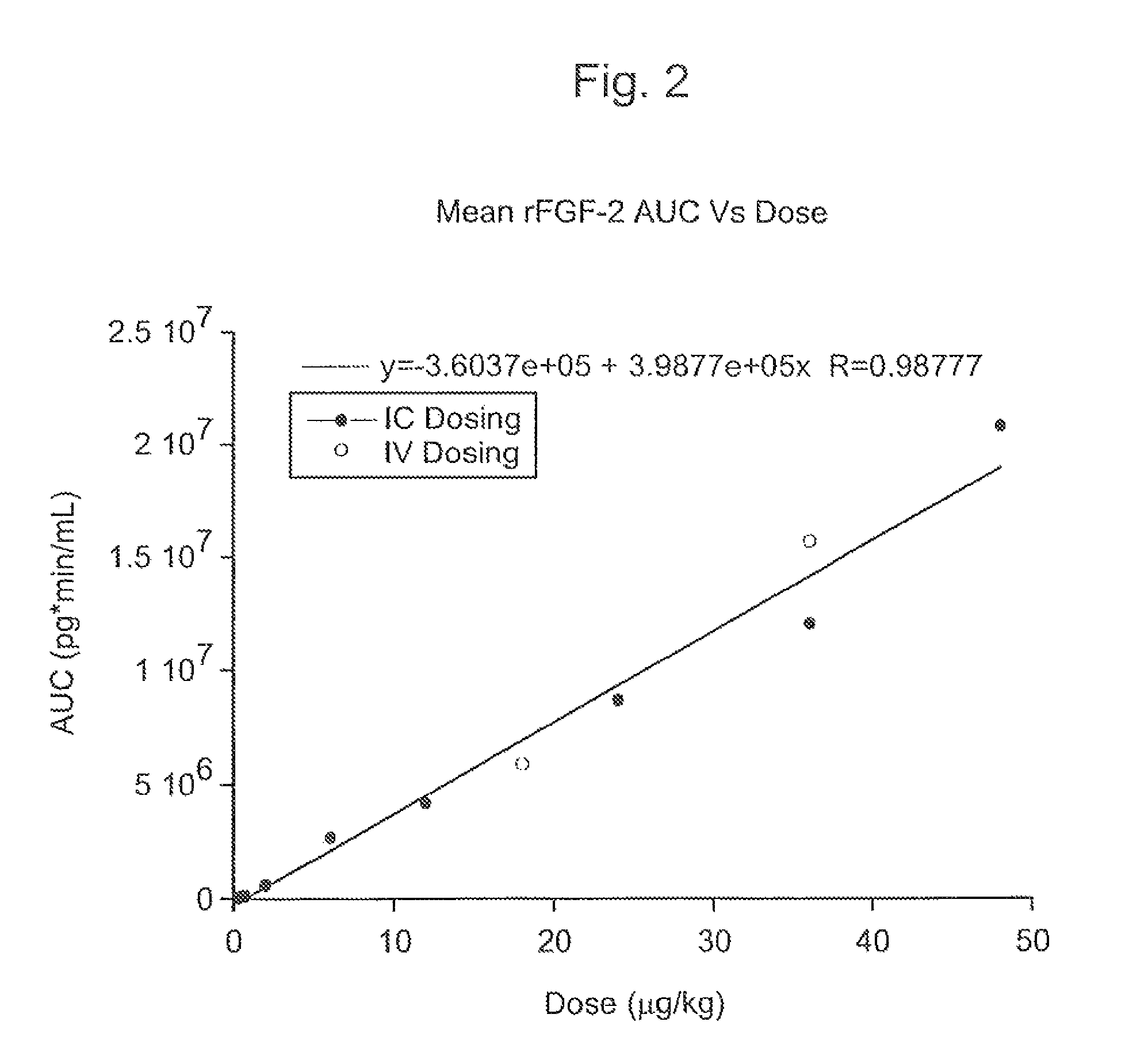Method of treating coronary artery disease FGF-2
a coronary artery disease and bypass surgery technology, applied in the field of treating coronary artery disease fgf2, can solve the problems of many patients who are required to undergo coronary artery bypass surgery at great expense and risk, and achieve the effects of improving the target wall thickening, improving the effect of vascular permeability, and high statistical significan
- Summary
- Abstract
- Description
- Claims
- Application Information
AI Technical Summary
Benefits of technology
Problems solved by technology
Method used
Image
Examples
example 1
Unit Dose of rFGF-2 Employed in the Phase I Clinical Trial
[0096]The rFGF-2 of SEQ ID NO:2 was formulated as a unit dose and pharmaceutical composition and administered to rats, pigs and ultimately to humans in the Phase I clinical trial referenced herein. The various formulations are described below.
[0097]The rFGF-2 unit dose was provided as a liquid in 3 cc type I glass vials with a laminated gray butyl rubber stopper and red flip-off overseal. The rFGF-2 unit dose contained 1.2 ml of 0.3 mg / ml rFGF-2 of SEQ ID NO:2 in 10 mM sodium citrate, 10 mM monothioglycerol, 1 mM disodium dihydrate EDTA (molecular weight 372.2), 135 mM sodium chloride, pH 5.0. Thus, in absolute terms, each vial (and unit dose) contained 0.36 mg rFGF-2. The vials containing the unit dose in liquid form were stored at 2° to 8° C.
[0098]The rFGF diluent was supplied in 5 cc type I glass vials with a laminated gray butyl rubber stopper and red flip-off overseal. The rFGF-2 diluent contains 10 mM sodium citrate, 10...
example 2
Selection Criteria for Patients with Coronary Artery Disease for Treatment with rFGF-2
[0100]The following selection criteria were applied to Phase I patients with coronary artery disease, whose activities were limited by coronary ischemia despite optimal medical management, and who were not candidates for approved revascularization therapies:
[0101]Inclusion Criteria:
[0102]Subject is eligible if:[0103]Male or female, greater than or equal to 18 years of age[0104]Diagnosis of coronary artery disease (CAD)[0105]Suboptimal candidates for approved revascularization procedures, e.g., angioplasty, stents, coronary artery bypass graft (CABG) (or refuses those interventions)[0106]Able to exercise at least three minutes using a modified Bruce protocol and limited by coronary ischemia[0107]Inducible and reversible defect of at least 20% myocardium on pharmacologically stressed thallium sestamibi scan[0108]CBC, platelets, serum chemistry within clinically acceptable range for required cardiac c...
example 3
Phase I Clinical Study on Recombinant FGF-2 (SEQ ID NO:2) Administered to Humans
[0133]The Phase I CAD trial of this example is an open label, dose escalation study of recombinant fibroblast growth factor-2 (rFGF-2) for safety, tolerability and pharmacokinetics. The study was conducted at two sites: Beth Israel Deaconess Hospital (Harvard) in Boston, Mass. and Emory University Hospital in Atlanta, Ga. Enrollment is complete. Subjects were treated with a single infusion of rFGF-2 on Day 1 and followed for 360 days; follow-up is not yet complete in some subjects.
[0134]The subject population consists of patients with advanced CAD who are exercise limited by coronary ischemia and are considered suboptimal candidates for (or do not want to undergo) one of the established revascularization procedures (e.g., CABG, angioplasty—with or without stent). The major exclusion criteria were history or suspicion of malignancy, uncompensated heart failure or left ventricular ejection fraction<20%, re...
PUM
| Property | Measurement | Unit |
|---|---|---|
| exercise tolerance time | aaaaa | aaaaa |
| exercise tolerance time | aaaaa | aaaaa |
| exercise tolerance time | aaaaa | aaaaa |
Abstract
Description
Claims
Application Information
 Login to View More
Login to View More - R&D
- Intellectual Property
- Life Sciences
- Materials
- Tech Scout
- Unparalleled Data Quality
- Higher Quality Content
- 60% Fewer Hallucinations
Browse by: Latest US Patents, China's latest patents, Technical Efficacy Thesaurus, Application Domain, Technology Topic, Popular Technical Reports.
© 2025 PatSnap. All rights reserved.Legal|Privacy policy|Modern Slavery Act Transparency Statement|Sitemap|About US| Contact US: help@patsnap.com



